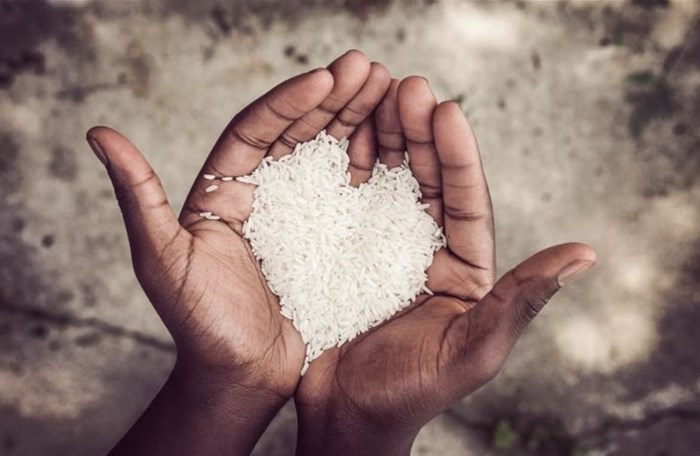Children are going hungry, and their futures are on the line. Evidence from Ghana

Those who depend on daily wage labour and lack savings have been among the hardest hit. Food shortages are worsening in rural areas of countries that face seasonal hunger even in normal times. For us, as researchers who study early childhood development, the signs are deeply troubling, particularly in the light of our new findings that even brief periods of food insecurity may harm children’s long-term development.
Even before the Covid-19 pandemic, 690 million people did not get enough to eat. The pandemic may add 265 million people to that number. A set of coordinated studies in several low-income countries found 25% to over 50% of respondents reported cutting back on food or skipping meals.
For children experiencing hunger, school feeding programmes have long been critical safety nets. They are a scalable and effective way to keep kids in school and free up family finances for other things. Research shows school meals improve nutrition and learning, especially for vulnerable groups such as girls and the poorest, or children in conflict. But most schools globally have been closed at least some of the time during the COVID-19 pandemic, and 265 million children are missing out on their daily school lunches. Our research shows this may have impacts even after the current crisis is over.
Our multi-year study focused on Ghana, and the association between a shortage of food in the household and early childhood development.
Before Covid-19 hit, Ghana shared many of the food security challenges of other countries in the region: 2.5 million Ghanaians, especially in rural areas, are severely food insecure. One preschool child out of five is chronically malnourished, a condition related to long-term health and economic impairments.
Covid-19 has likely worsened this situation: more than 40% of Ghanaians responding to a recent survey say they have had to limit portion sizes at mealtimes or reduce the number of meals since February 2020. Households with school-age children are more likely than those without children to report being unable to buy the usual amount of food because household income has dropped.
Schools are closed until next year and the government’s free school meals programme has been discontinued as a measure to fight the virus.
Our study over several years found that even reporting food insecurity in one survey round but not in the others was associated with poorer child development outcomes. Our findings suggest urgent action is needed to make sure people have enough food during the current global pandemic. Not only are livelihoods at risk, but millions are facing hunger.
Short spells of hunger can have lasting consequences
The study tracked the same parents and children between 2015 and 2018. We measured experiences of food insecurity at home and a variety of child outcomes, including academic, socio-emotional and cognitive achievements. We also collected measures related to child households and school backgrounds, including indicators of school quality.
The household experience is important. In addition to hunger’s direct impacts on development, parents’ struggles to provide the next meal affects their and their children’s mental well-being.
We found that children from households that were food insecure even only once during the three-year study period had lower literacy and numeracy abilities and short-term memory performance later on. We cannot say for sure if food insecurity alone caused these poorer outcomes. But even after accounting for differences between children’s household backgrounds and school quality, a child who had been in a hungry home did worse on a mental task (like remembering a string of numbers) years later. This was true for boys and girls, indicating that children are being affected in similar ways.
Our results echo those of previous studies from India and the US. Overall, this evidence suggests that even short-term experiences of food insecurity at home, especially during the preschool and early primary years, can lead to persistent impairments in children’s academic and socio-emotional outcomes.
Thus, while children’s hunger is foremost an immediate humanitarian crisis, it may also have long-term economic and health impacts. We know that children who experience persistent malnutrition go on to earn less as adults.
So, what can be done?
Thankfully, many countries have taken action. Ghana and South Africa, for example, expanded social safety net programmes or instituted new ones to include food distribution, though some of those have ended. The World Food Programme and UNICEF partnered to provide take-home rations, vouchers or cash transfers to children in 68 countries.
Bolstering cash transfers as Ghana and other countries have done gives families the option of spending on food, rent or medicine. This could be particularly helpful for the newly poor such as urban daily labourers or agricultural workers whose work may have completely dried up.
Even if closed, schools can be a base to distribute food that is cooked on-site, as in Liberia and some Indian states, or take-home rations such as in Sierra Leone. This takes advantage of existing physical infrastructure and trusted community institutions while supporting local food providers. Alternatively, safe door-to-door or phased distribution could avoid overcrowding and help communicate health messages about Covid-19.
Countries need multi-sectoral approaches to food insecurity because childhood hunger is a humanitarian, education, and economic crisis. Budgets are already strained, but the costs of inaction will be felt for a very long time.
This article is republished from The Conversation under a Creative Commons license. Read the original article.
Source: The Conversation Africa

The Conversation Africa is an independent source of news and views from the academic and research community. Its aim is to promote better understanding of current affairs and complex issues, and allow for a better quality of public discourse and conversation.
Go to: https://theconversation.com/africaRelated
Pick n Pay's fight against hunger in South Africa 15 Oct 2024 Mandela Rhodes Foundation 2024 Äänit Prize winners announced 18 Sep 2024 Mass potato donation provides staple for over 5 million meals countrywide 21 Jun 2024 Almost 50% of adult South Africans are overweight or obese. Poverty and poor nutrition are largely to blame 14 Jun 2024 SA Harvest receives R1m from H&M for fight against hunger 17 May 2024























